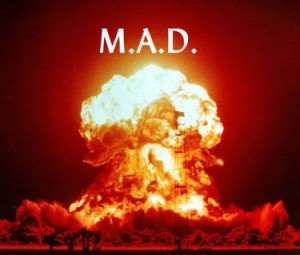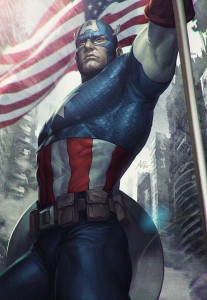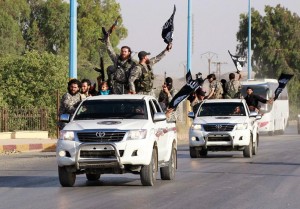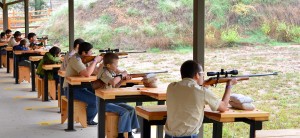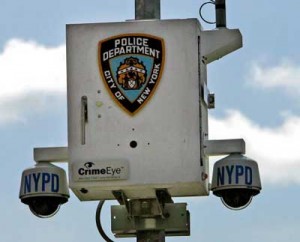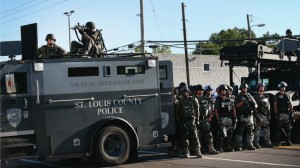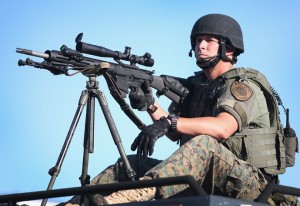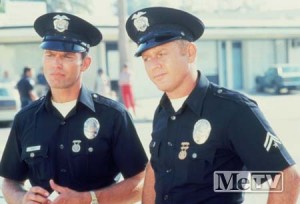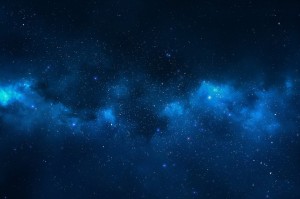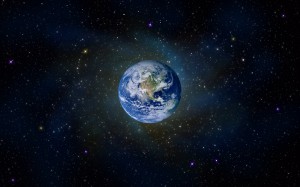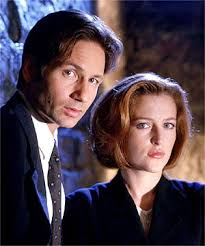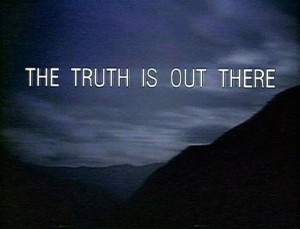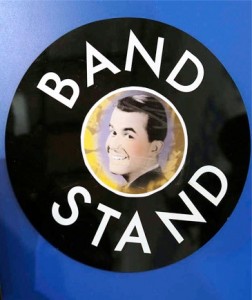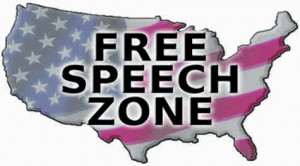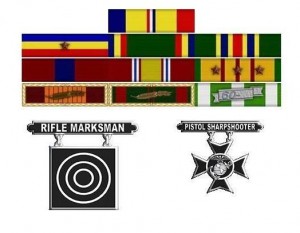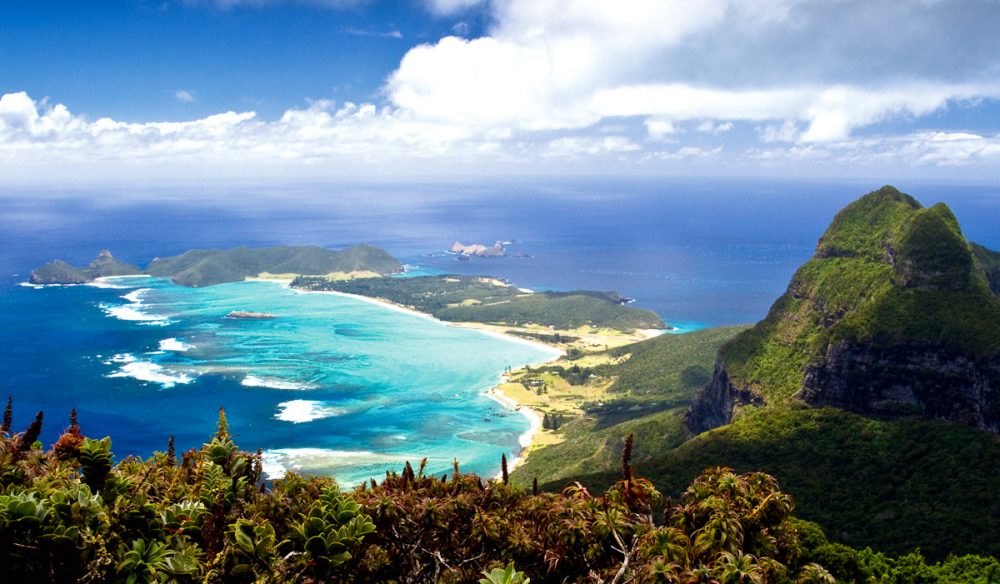When I first started this blog, I was pretty much determined to stay away from political issues or the “heavy” issues of the day. There’s enough of that on line already. Unfortunately, I find myself straying away from light-hearted fare and thinking about more serious issues. This is not to say I’m moving into pondorous thinking, but I now reserve the right to write about more important issues as well. This is not a particularly big deal, inasmuch as very few people read this blog. For those of you who do, I am grateful.
Pax Americana (American Peace)
This rather grandiose Latin term speaks to much of the world I grew up in. From the beginning of the twentieth century, world peace has depended almost solely on one thing: The United States.
After the Civil War, the world was relatively peaceful until the outbreak of World War I. Beginning in 1914 the Allies (Britain, France and Russia) battled the “Central Powers” of Germany and Austria-Hungary. These enemies, along with others joining in the fray, battled each other in a nasty trench-warfare conflict until 1917, when The United States entered the war. The United States had remained neutral until German submarines began sinking American ships and Germany approached Mexico to be a military ally. This tipped the scale in the allies favor, ending the war in 1918.
The United States thus became a player on the international stage, and solidified this position during World War II with the defeat of Germany and Japan. Ending the war with the use of the first atomic bomb, The United States became the world’s Superpower.
In the years that followed, American political leaders were mostly concerned about the rise of “International Communism”, primarily the Soviet Union (the Chinese were in the equation too, nut not considered a major threat at the time). Certainly we ran up against them in the Korean War, but that was an anomaly. We were not yet ready to start throwing our weight or our nukes around. The Korean War was more a test of loyalties, seeing who would side with us against evil when the chips were down. We used the quaint rubric of the United Nations as a cover, and it pretty much showed that our real allies when the rubber met the road were few, and their support was more cosmetic than real.
We maniacally worked to enhance our nuclear weapons, developing far bigger and sophisticated nuclear bombs and delivery systems. We were way out ahead in the game, but thanks to some friendly spying by the Soviets, aided by the Rosenbergs and some others (look them up if you want), the ‘ol “Ruskies” soon reached a rough parity with us. The new acronym in this tit for tat development race became known as MAD, Mutually Assured Destruction. This meant if we shot ours and the Soviets shot theirs, we would both blow the crap out of each other and nothing would be left.
This Mexican standoff resulted in some pretty tense times, highlighted by the 1962 Cuban missle crisis, when the Ruskies blinked first.
This Superpower race continued until the collapse of the Soviet Union in the 1980’s. We then became the world’s only remaining superpower and the world’s cop, or at least the world’s interventionist, getting involved in various struggle around the globe.
A quick look on line and we see some of the places we got involved around the world in the past several decades:
The CIA was involved in the UNITA movement in Angola, the Solidarity movement in Poland, the Contra revolt in Nicaragua, and the Khemer NLF movement in Cambodia. We had troops involved in Lebanon, where 241 Marines were killed in a bombing in Beirut. We got involved in El Salvador, Grenada, and Panama. We bombed Libya.
We started the Gulf War in 1991, protecting Kuwait. We intervened in Somalia, and lost troops in the infamous Blackhawk Down event. We sent troop to Haiti, and bombers to Bosnia/Serbia. We fired missles into Afghanistan and the Sudan.
Since September 11, 2001, we have been involved in Iraq, Afghanistan, and Libya. All this not to mention drone attacks in Pakistan and Yemen, as well as an on-going drug war against the cartels in Colombia.
We are the world’s cop. We have been involved in global conflicts large and small for decades. The moral correctness and the effectiveness of these interventions may be debatable, but much of the world sees us as the one country who will get involved anywhere to right a perceived wrong. Additionally, we would defend our friends without reservation, jumping into any fray to protect them. This may not have brought peace to the world, but it maintained a stability. Local and/or regional issues stayed just that, the fires of warfare did not spread across the world. With the Big Cop on the beat, most belligerents took caution.
Now that may be changing.
We’re tired, we’re worn out, and we’ve been taken for granted. Our “allies” have sytematicly dismantled their own armed forces, reasoning that we would take care of them if they had a problem. They have become so used to living under the “umbrella” of the United States they see little reason to waste precious resources on defense. Let us spend the money.
We have approximatelty 1.4 million people in our active military, spending in excess of $625 billion per year, about 5% of our Gross Domestic Product. Britain has about 206,000 troops and spends about $63 billion or 2.3% of their GDP. France; 222,000 troops, $31 billion, 2.3% GDP. Germany; 183,000 troops, $45 billion.
The list can go on and on. Our allies have happily let us do the heavy lifting as they reduced their armed forces. They knew we would protect them, so they had better uses for their money.
Now something has happened. We too, are cutting back, reducing our forces. Current proposals would reduce some of our armed forces to pre World War II levels, the lowest numbers of troops and equipment in over 70 years. Additionally, the current Administration has made it pretty clear we’re no longer the intervention type. We’re withdrawing from Afghanistan, we’ve mostly left Iraq, and our “footprint” on the world stage is diminishing. Don’t think our enemies have not noticed.
If the United States is no longer policing the world, what happens? If the teacher leaves the playground, what do the bullies do? Exactly.
And the bullies are starting to come out to play. Islamic terrorism is on the rise, most recently embodied in the so-called ISIS, which means something about an Islamic state, but who cares? These are full-blooded loonies sweeping across Syria and Iraq, chopping off heads of men, women, and children along the way. First called the “junior varsity” by our beloved President, these monsters in just a few short months have risen to the level of a serious threat to us, as noted just today by our Secretary of Defense.
So now what? Do we go fight them in the Middle East, or ignore them unless they come to our door? Does Pax Americana still exist, or have we retired from the field? I don’t know the answer, nor how this will play out, but it seems playing the world’s cop is much easier to begin than to end.
